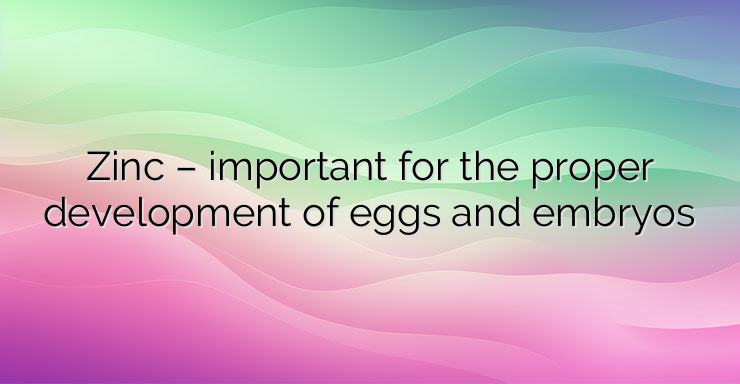Research done by American scientists shows that zinc is important for the proper development of both eggs and embryos. Researchers from the Feinberg School of Medicine at Northwestern University in the state of Illinois (USA) conducted a series of laboratory experiments with mice. Using a special technique, experts determined the level of zinc in mature eggs and embryos. It turned out that during the growth period of female germ cells, as well as in the initial stages of fetal development, the content of this trace element doubles. The high zinc content helps the eggs to grow properly and pass through the critical periods in their development that are necessary for normal fertilization. One of the most important contributions of the trace element is its involvement in gene expression. It is a complex process of reading information encoded in DNA, rewriting it in the form of RNA and turning it into the final product – namely the protein encoded by the read gene. The role of zinc here is still at the level of unraveling the information recorded in DNA through molecules called transcription factors, in the composition of which the trace element contributes to the appropriate spatial orientation. With this function, zinc is involved in many processes – from intracellular reactions, through cell division or programmed cell death to intercellular signaling. It is necessary for growth and physical, intellectual, sexual development and fertility, for the maintenance of the immune system. To test their hypothesis, the scientists treated oocytes from mice with special chelating molecules that prevent the accumulation of zinc in the cells and followed the further development of the oocytes. The treated oocytes lost their ability to mature and form full-fledged eggs. In addition, the genetic material in them was damaged and as a consequence, fertilization and normal development of healthy embryos could not take place. All observed processes returned to their normal development when a sufficient amount of zinc was introduced into the cell. “Understanding the role of micronutrients such as zinc in the development of sex cells is extremely important,” said study leader and reproductive specialist Dr. Alison Kim. – “At the moment, doctors cannot definitively determine which egg cells, after merging with a sperm, will give a full-fledged and properly developing embryo. If we can learn more about the influence of trace elements on this process, we will be able to significantly improve methods of treating infertility.” The results of the study are published in the online edition of the journal Nature Chemical Biology.


Leave a Reply